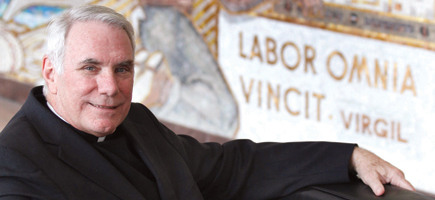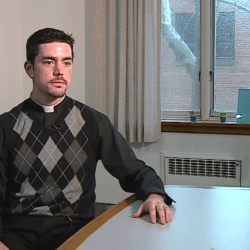Just in time for Labor Day comes this portrait of “labor priests,” from Catholic San Francisco:
In the 1891 encyclical “Rerum Novarum,” or “On the New Things,” Pope Leo XIII supported the rights of labor to form unions, and called for ameliorating “the misery and wretchedness pressing so unjustly on the majority of the working class.”
In 1919, the U.S. Catholic bishops offered President Woodrow Wilson their ideas about re-ordering American society following the Great War. It was called the Bishops’ Program for Social Reconstruction and one of its themes was support for labor, while, at the same time, it became a blueprint for the New Deal and also later would influence federal labor law and worker protection.
That’s the historical context for a new coalition of American priests that is forming, to comfort the many working people and poor people in their parishes, letting them know that the church supports their campaigns, including organizing, to give them a better life.
“We’re not coming at this out of thin air,” said Father Richard Vega, the outgoing president of the National Federation of Priests’ Councils in Chicago, helping to form a group of priests advocating for workers. “We are talking about what our principles have always been. From Leo XIII to Benedict XVI there is a consistency. There is no break.”
Father Vega and Father J. Cletus Kiley, a priest of the Archdiocese of Chicago who is on leave while working as director of immigration policy for UNITE HERE, the hotel, restaurant and textile workers’ union, in Washington, D.C., in May brought together about 30 priests from around the nation to talk about their common concerns for the plight of today’s working class, particularly poor immigrants, many of whom are Catholic.
It’s a movement so nascent it doesn’t have a name – call it labor priests or the priests’ labor initiative – and is housed at the National Federation of Priests’ Councils in Chicago.
















